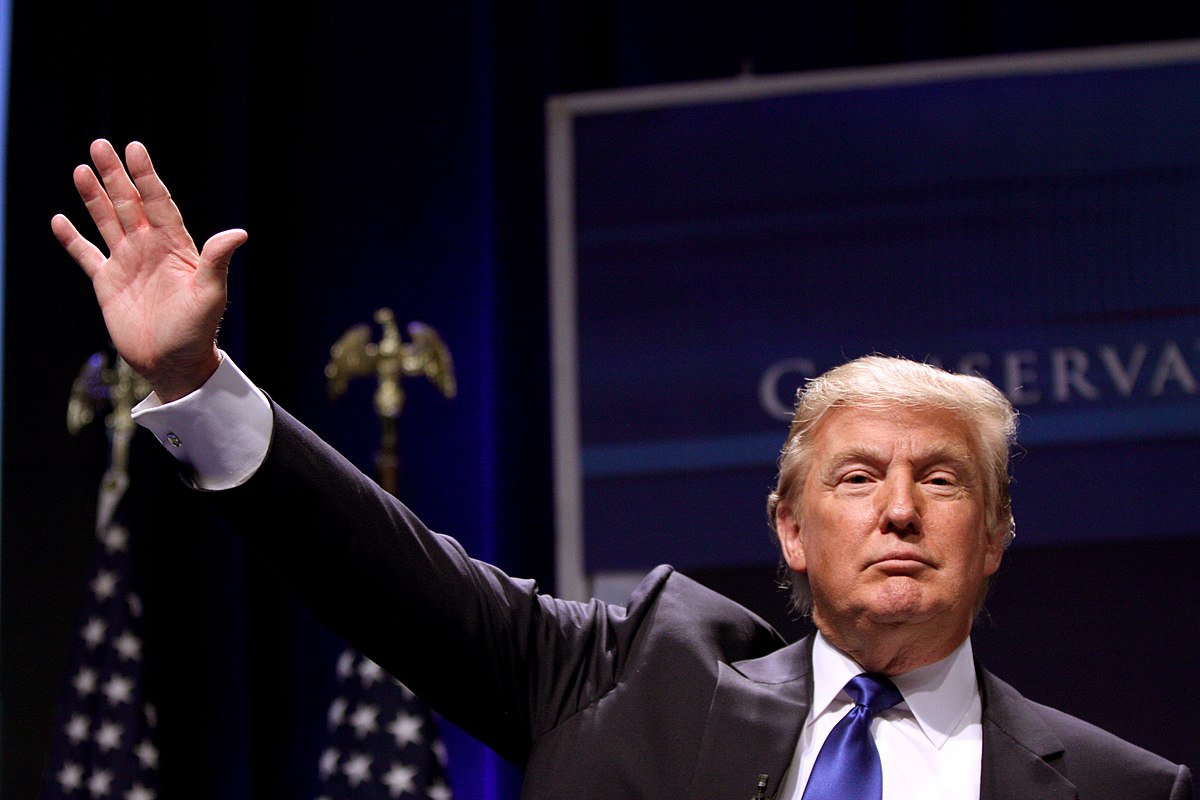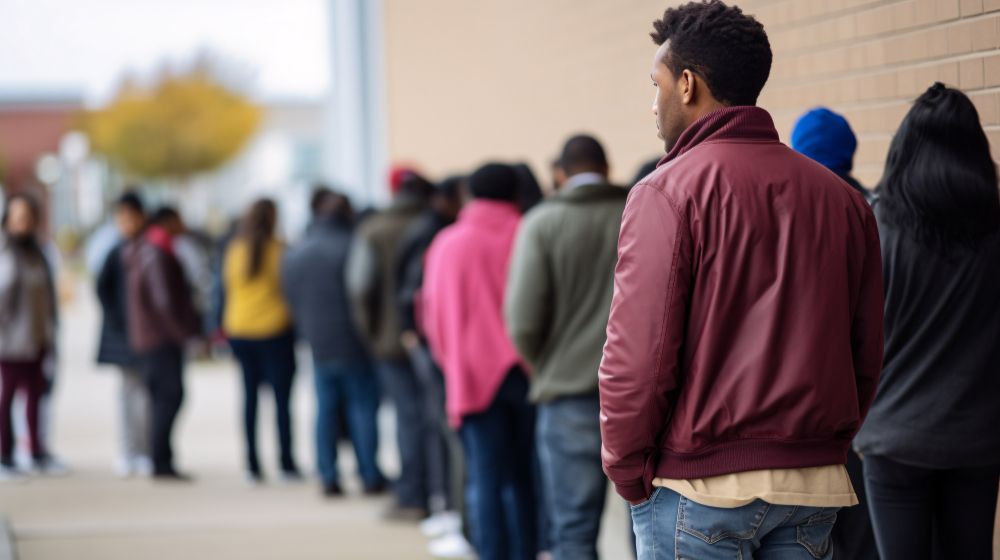- 14 3402-5578
- Rua Hygino Muzy Filho, 737, MARÍLIA - SP
- contato@latinoobservatory.org
The 2024 United States presidential election is scheduled to begin on November 5, 2024, with the most likely candidates being challenger Donald Trump, representing the Republican Party, and incumbent President Joe Biden, representing the Democratic Party. The advanced age of both candidates, 78 and 81 years old respectively, on the date of the election, together with dissatisfaction with their previous terms (2017-2020 and 2021-2024, respectively), increases uncertainty among voters about which candidate will prevail, in addition to boosting votes for third parties, candidates who are not linked to either of the two major parties and may appear as third way or protest votes. This uncertainty is even more pronounced in key states, which have historically not been tied to a specific party. As we observed during the 2022 midtermelections, small vote shifts in these states can lead to one party winning over the other in the nation's overall landscape. In Nevada, one of those key states, Latino voters make up 20 percent of the electorate, and unlike the 2020 presidential election and the 2022 legislative election, historic Latino support for the Democratic Party is not guaranteed to continue.
Political uncertainties and instabilities: high rejection of the two best-rated candidates.
The 2020 presidential election went down in American political history for a number of significant reasons. Both victorious Joe Biden and second-place finisher Donald Trump won the two highest amounts of popular votes recorded so far in a presidential election. In addition, the global pandemic that began at the beginning of the year may have influenced some electoral choices, with possible vote shifts stemming from dissatisfaction with Donald Trump's political approach to public health. In addition, the outcome of the election was accompanied by Democratic control in the House of Representatives[1] and Republican control in the Senate[2].
In a similar vein, the 2024 election is destined to be marred by anomalies. With an approval rating of 39.6%, the lowest for the start of the fourth year of a presidential term in the century, according to data from FiveThirtyEight, Joe Biden faces an uncertain scenario regarding his reelection. This low approval is closely linked to the persistent high inflation of 2022, which still affects US citizens, and, more recently, the growing disapproval due to the billionaire aid funds given to Ukraine and Israel amid the ongoing conflicts, among other factors.
Even so, the negative effects of Donald Trump's presidential tenure still echo among U.S. citizens. His aggressive approach to immigration policy, controversial personality and abrasive behavior continue to contribute to a considerable rejection rate of his candidacy, increased by the lawsuits he faces in the country. One of the most significant cases for the present analysis, the U.S. Capitol incident and the issues surrounding the 2020 election, focuses on the investigation into whether Trump conspired to alter the election results by mobilizing a mob to storm Congress on January 6, 2021, in an attempt to subvert the democratic process. The charges include conspiracy to commit voter fraud and conspiracy against citizens' rights. Trump denies any wrongdoing, while the Supreme Court's wait for a decision on his appeal makes the outcome of the trial uncertain. The possible penalties, ranging from fines to 20 years in prison, hang over the former president.
A significant development in this process has emerged in the states of Colorado and Maine, where a group of voters has filed a lawsuit arguing that Trump's involvement in the attack on Congress disqualifies him from running for president, as set forth in Section 3 of the 14th Amendment, which prohibits the candidacy of individuals involved in insurrections or rebellions. Both Colorado and, subsequently, Maine invoked this clause to declare Trump ineligible to run in their territories. After the Colorado Supreme Court upheld Trump's violation of the Amendment, the former president's legal team appealed to the U.S. Supreme Court. The final decision made by the U.S. Supreme Court overturns Colorado's decision to remove Trump's name from the ballot, which celebrated the decision as a "Big Win for America!" on its Truth Social platform.
Finally, it is interesting to add to this situation of high rejection of the main candidates the recent poll carried out by ABC News/Ipsos that indicates that 59% of Americans believe that both Joe Biden and Donald Trump are too old to serve another presidential term. All these factors lead us to the possibility of a third-way candidate receiving more votes than in the last few elections.
Third Parties: Impact and Difficulties
Although the United States has a two-party political system, there are candidates who have no affiliation with either of the two major parties – Republican and Democratic – being able to launch their candidacies associated with a minor party or as independent candidates. This Third Way alternative, known as "Third Party", has never been able to muster enough strength to win a presidential election, being more common in municipal and state elections. However, the presence of the Third Way and its number of votes can impact the candidates of the majority parties, and may even lead one of them to defeat.
A FoxNews poll revealed that the political landscape in the Midwest of the United States could be different this year. Although there is a technical tie between Democrats and Republicans in the head-to-head, when considering the Third Parties, Trump's advantage increases. This emphasizes the significant impact that votes for minor candidates can have, especially if they come from former Biden voters, which could hurt the Democratic candidacy considerably. The three minor candidates — Stein, West and Kennedy Jr. — are younger than Biden and Trump, and while they don't score highly in the polls, they pose challenges to the major parties. Jill Stein, one of the candidates, is a critic of bipartisanship and received significant votes in 2016, while Cornel West is an intellectual and critic in the field of philosophy and politics. Kennedy Jr., despite being a prominent figure in the Kennedy family, causes embarrassment due to his anti-vaccine militancy, although he has managed to raise considerable funds and claims he will continue in the presidential race.
Even so, access to ballots for third-way presidential candidates in the United States is hampered by the complex web of state laws designed by the Republican and Democratic parties, which hold control of state legislatures across the country. While the candidates of the dominant parties are usually automatically included on the ballots, Third Parties face a number of obstacles, varying from state by state. For example, in California, a minority party must collect 75,000 signatures from residents willing to switch parties or register for the first time, while an independent candidate needs to gather about 219,000 signatures.
According to an article published by Reuters, states such as New York, Texas, Indiana, West Virginia, Arizona, Florida and Maine have specific requirements and strict deadlines for inclusion on the ballot. For example, in New York, Governor Andrew Cuomo spearheaded an initiative in 2020 that modified the ballot access law, making it harder for minority parties like the Libertarian, Green and Independent to qualify.
The Power of the Latino Vote
Latinos have a significant impact on politics in California, the state that has the most electoral college votes. They played a crucial role in consolidating Democratic dominance in the last presidential election, which diminished the importance of the vote for the overall 2024 outcome. Now, eyes turn to states like Nevada, which have emerged as key swing states. Nevada has six electoral college votes and has been decided by narrow margins in the last presidential election, with the Democratic candidate winning by less than 3% of the vote.
That's the essence of the power of the Latino vote: to influence the outcome of elections in hotly contested states. The Latino vote often deviates from the general trends of the American population and other ethnic minority groups. While it's difficult to predict the individual actions and beliefs of such a vast group — with more than 34 million Latinos eligible to vote — it's safe to say that historically this constituency has been aligned with the Democratic Party. Given that the party has faced challenges from third-way candidacies and other difficulties, the collaboration and support of Latino communities could be crucial for incumbent President Joe Biden in his bid for re-election. Typically, this would lead to the implementation of policy strategies targeting Latino communities in the United States, aimed at appealing to the undecided vote and those who might consider third-way candidate options. What happens more recently, however, has the opposite effect for the Democratic Party.
According to a Reuters article, President Joe Biden's tougher stance on immigration is testing the Latino vote in Nevada. Many Latino voters in the state express their disappointment with Biden's failure to expand protections for immigrants in the U.S. illegally. Even though he promised to reverse former President Donald Trump's hardline immigration policies, Joe Biden has taken tougher measures, including calling for more funding for law enforcement and suggesting he would "close the border." These policies are aimed at appealing to the votes of swing moderates, but they risk alienating more liberal Democrats and some Latinos.
Despite the Biden campaign's efforts to highlight the differences between his approach and Trump's, concerns about immigration persist, a topic especially important to Latino voters. Record numbers of migrants trying to cross the U.S.-Mexico border have fueled Republican criticism, with polls showing growing concern about immigration. Biden's campaign believes his constituency will prioritize other issues regarding immigration.
However, Biden's increasingly hawkish stance, including policies reminiscent of Trump's, has been the subject of discussion. The presidency is reportedly considering additional measures to reduce illegal immigration, including using executive authority to deny asylum to more migrants at the border.
The 2024 presidential election in the United States is shrouded in political uncertainty, with Joe Biden and Donald Trump facing considerable challenges due to high rejection rates and a volatile landscape. There is room for third-way candidates to significantly influence the results, highlighting the importance of voting and popular participation. The Latino vote emerges as a crucial factor, especially in battleground states like Nevada. Thus, the candidates' sensitivity to the Latino issues is vital, underlining the need for effective approach to securing the support of these influential voters in a vibrant democracy.
[1] 235 Democraticrepresentatives, 199 Republican representatives. 218 required to gaincontrol.
[2] 47 Democratic senators, 53Republican senators. 51 needed for control, vice president breaks thetie.











